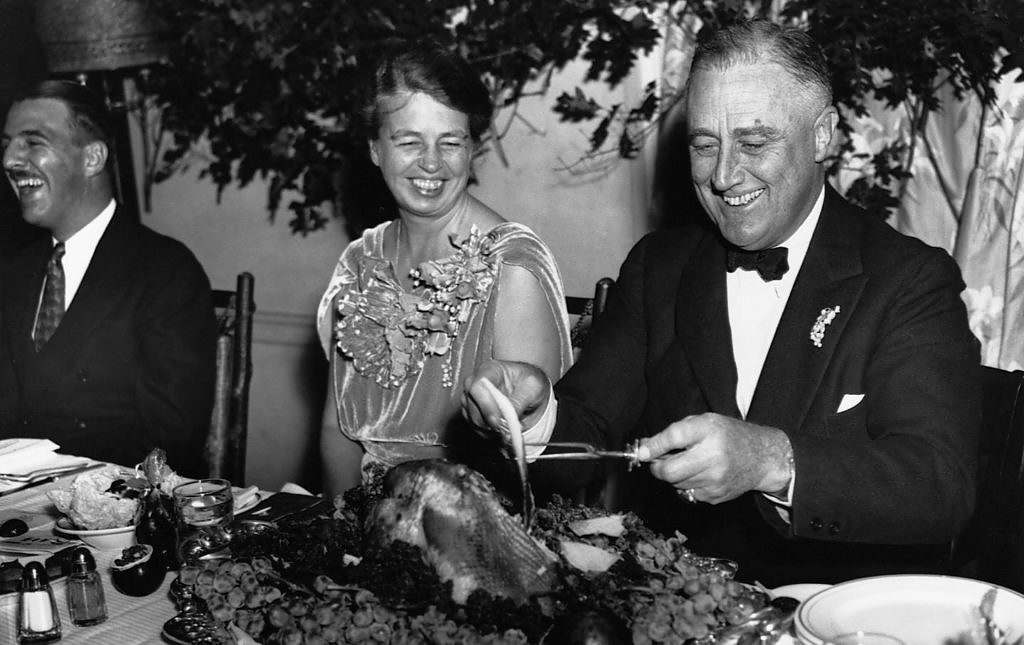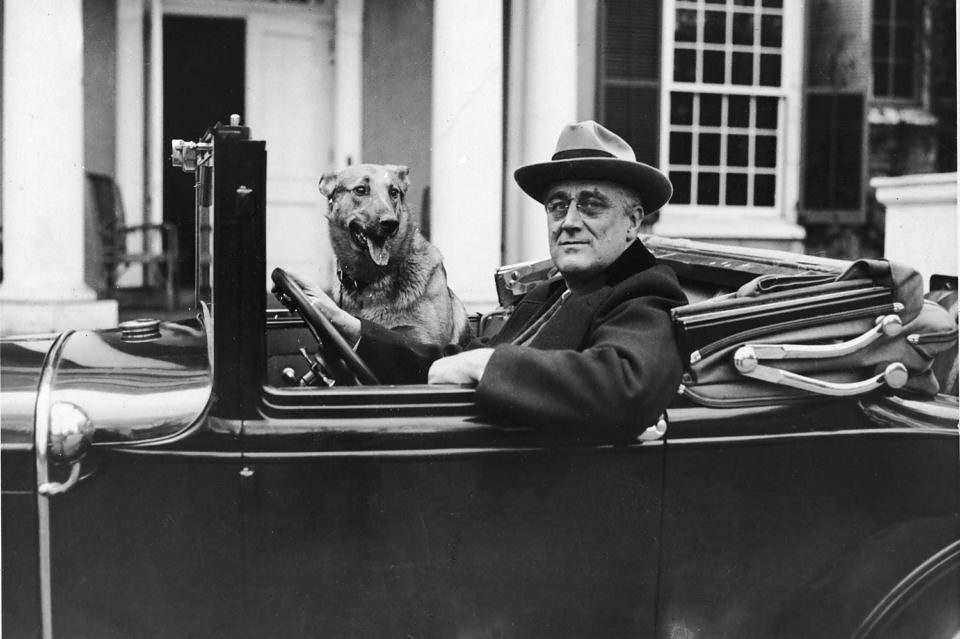|
Getting your Trinity Audio player ready...
|
Your grandparents and great-grandparents faced a tough choice 84 years ago this month. Which day would they pick to observe an important holiday? Because two alternatives existed in 1939: Thanksgiving and “Franksgiving.”
And it was no laughing matter.
America was still clawing its way out of the Great Depression as the 1930s ended. True, things weren’t nearly as bad as they had been at the depths of the crisis back in 1932-34 when one out of every four adults was out of work. But there was no quick bounce back to normal, either. The recovery was slow and anemic. One push and the wobbly economy could come tumbling down.
President Franklin Roosevelt was committed to doing everything he could to encourage the turnaround, even if that meant monkeying around with tradition. He landed in hot political water for it as a result. Which is where Thanksgiving Day enters the story.
Every schoolchild knows how the Pilgrims set aside a day to give thanks for having survived their brutal first year in the New World. Our tradition grew out of that first feast. But from its earliest times, Thanksgiving was observed on different dates in different states. (For instance, the author has in his collection a letter written in December 1862 by a woman in Vermont to a friend in Massachusetts that says, “I spent the holiday with my dear husband’s family. You remember our Thanksgiving was not until a week after yours.”)

***
Southerners didn’t embrace Thanksgiving until the early 20th century. Having originated in New England, it was suspiciously viewed as a “Yankee holiday.” As old animosities faded, Dixie came to view the opportunity to stuff oneself with turkey every November as a good thing. By the 1930s, Thanksgiving had become a truly national celebration.
However, it wasn’t a national holiday. In fact, there wasn’t even a recognized day for it. That famous first Thanksgiving had been held in October 1621. A wide array of dates in different months were selected for the celebration over the next few decades. In 1863, president Abraham Lincoln proclaimed the last Thursday in November for the event (yet another strike against it in Southern eyes).
In 1870, Congress made Independence, Thanksgiving, Christmas, and New Year’s Days national holidays. But there was a goof in that legislation: It didn’t specify a date for Thanksgiving. Each president issued a proclamation declaring what day the holiday would be observed each year.
Which brings us to 1939: There were five Thursdays that November. The last one – the time when Thanksgiving was traditionally observed – fell on November 30. And that greatly upset the National Retail Dry Goods Association.
It wasn’t called Black Friday back then, but the day after Thanksgiving was still when the Christmas shopping season customarily started. And a December 1 kickoff meant only 23 shopping days. So, the retailers leaned hard on FDR to move up Thanksgiving to provide an extra week for consumers to spend money. Roosevelt obligingly proclaimed the 23rd as the holiday.
And then it hit the fan …
(Click to view)

The president’s proclamation only carried official weight in the District of Columbia. For the most part, governors usually followed the Feds’ example for their state holiday. But as with so many of Franklin Roosevelt’s other innovations, this one ripped the country in half. Opponents sneeringly labeled it “Franksgiving.”
Governors in 23 of the then-48 states went with the president’s date; 23 others stuck with the 30th. Texas and Colorado even declared both days Thanksgiving! Printed calendars were worthless in half the country.
Then as now, many families shared the holiday with loved ones who lived in other states, and the dueling dates made planning a logistical nightmare. For example, South Carolina and neighboring Georgia celebrated on the 23rd; North Carolina went with the 30th.
And that was nothing compared to the sheer mess the controversy made of the college football schedule. Coaches didn’t know whether to play games already on the calendar or to move them to a different week.
Roosevelt admitted afterward the wholesale confusion outweighed any benefits to America’s bottom line. He ultimately announced he would return to the traditional date starting in 1942. But congress beat him to the punch. Fed up with endless constituent complaints, senators and congressmen took matters into their own hands. They passed a measure establishing the fourth Thursday of every November as the Thanksgiving Day holiday. Roosevelt was only too happy to sign it and be done with the whole mess.
And so “Franksgiving” was quietly tucked away in Washington’s bulging “Seemed like a Good Idea at The Time” file.
Which is why for the last 82 years your family has only had to ask, “Who is bringing the green bean casserole this year?’ as opposed to “What day is Thanksgiving in your state this year?”
***
ABOUT THE AUTHOR…
J. Mark Powell is an award-winning former TV journalist, government communications veteran, and a political consultant. He is also an author and an avid Civil War enthusiast. Got a tip or a story idea for Mark? Email him at mark@fitsnews.com.
***
WANNA SOUND OFF?
Got something you’d like to say in response to one of our articles? Or an issue you’d like to address proactively? We have an open microphone policy! Submit your letter to the editor (or guest column) via email HERE. Got a tip for a story? CLICK HERE. Got a technical question or a glitch to report? CLICK HERE.


